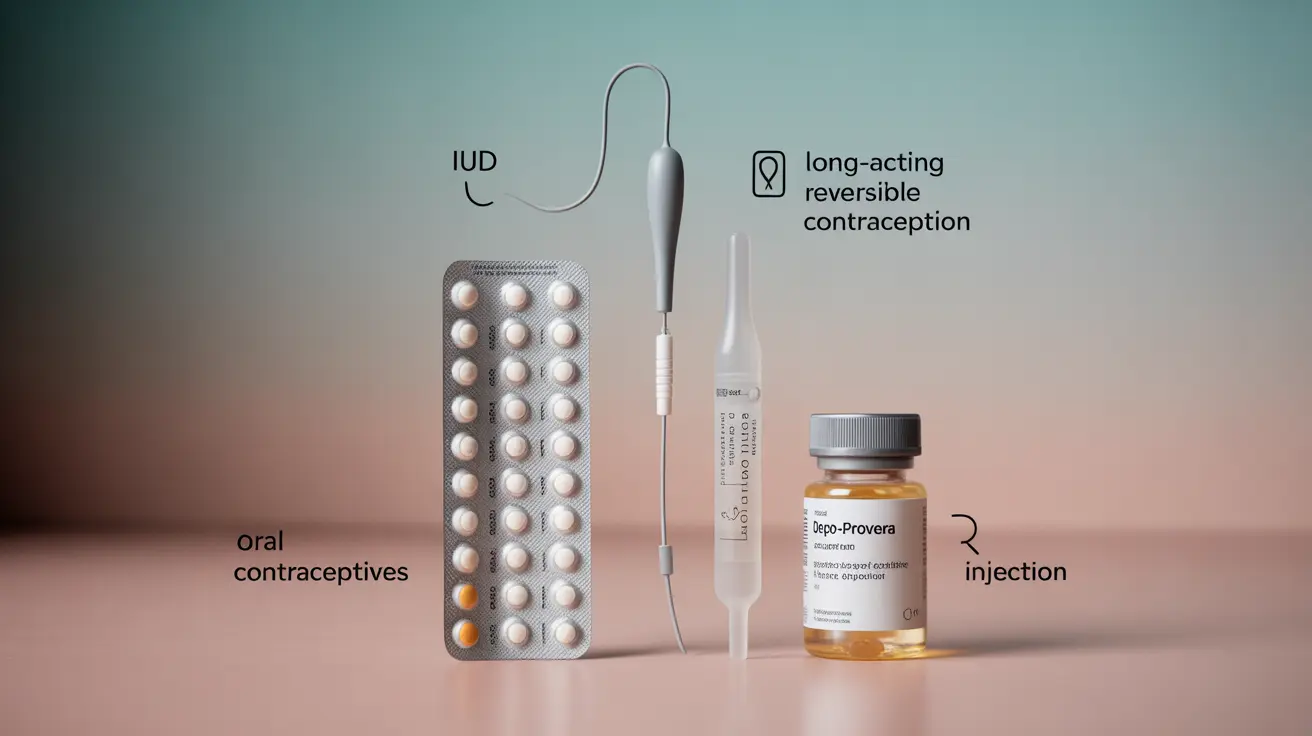Managing weight while using birth control is a common concern for many individuals. Understanding how different contraceptive methods might affect your weight and knowing which options are least likely to impact the scale can help you make an informed decision about your reproductive health.
While no birth control method is specifically designed for weight loss, some options may be less likely to cause weight-related side effects than others. Let's explore various contraceptive choices and their potential effects on weight management.
Understanding the Relationship Between Birth Control and Weight
Different types of birth control can affect individuals differently, and weight changes aren't guaranteed with any method. Hormonal fluctuations, water retention, and other factors can all play a role in how your body responds to contraception.
Hormonal Birth Control Methods and Weight
The relationship between hormonal birth control and weight changes is complex. While some people may experience slight weight fluctuations, research suggests that most hormonal methods don't directly cause significant weight gain. Here are some common options:
- Low-dose combination pills
- Hormonal IUD
- Birth control patch
- Vaginal ring
Non-Hormonal Options for Weight-Conscious Individuals
If you're concerned about potential weight changes, several non-hormonal methods offer reliable contraception without hormonal side effects:
- Copper IUD
- Barrier methods (condoms, diaphragms)
- Natural family planning
- Sterilization (for permanent contraception)
Understanding Injectable Contraception
The Depo-Provera shot deserves special attention as it's the one form of birth control that has been consistently linked to weight gain in research studies. Users may experience an average weight gain of 5-8 pounds in the first year of use.
Making an Informed Choice
When selecting a birth control method with weight management in mind, consider these factors:
- Your medical history
- Current weight and lifestyle
- Previous experiences with hormonal medications
- Long-term family planning goals
- Other health considerations
Lifestyle Considerations
Maintaining a healthy weight while using any form of birth control often comes down to lifestyle choices:
- Regular physical activity
- Balanced nutrition
- Adequate sleep
- Stress management
- Regular health check-ups
Frequently Asked Questions
Are there any birth control methods that can help with weight loss? No birth control method is designed to promote weight loss. However, non-hormonal methods like the copper IUD and barrier methods are least likely to affect weight. Focus on healthy lifestyle habits for weight management while using your chosen contraception.
How does the Depo-Provera shot affect weight, and are there alternative birth control options? The Depo-Provera shot is associated with weight gain in many users. Alternatives include low-dose hormonal pills, IUDs, or non-hormonal methods if weight gain is a concern.
Can hormonal birth control lead to weight gain or loss, and what lifestyle changes can help? While some hormonal methods may cause temporary water retention or slight weight changes, maintaining a balanced diet and regular exercise routine can help manage weight regardless of the birth control method chosen.
What are the best non-hormonal birth control methods for managing weight? The copper IUD, condoms, diaphragms, and fertility awareness methods are effective non-hormonal options that don't impact weight. These methods work well for individuals concerned about hormonal side effects.
How can I prevent weight changes while using hormonal birth control? Monitor your diet, maintain regular exercise, stay hydrated, and track any changes in your weight or body composition. If you notice significant changes, discuss alternatives with your healthcare provider.




